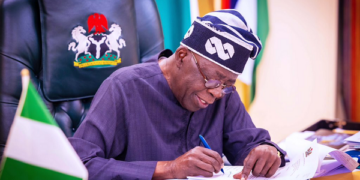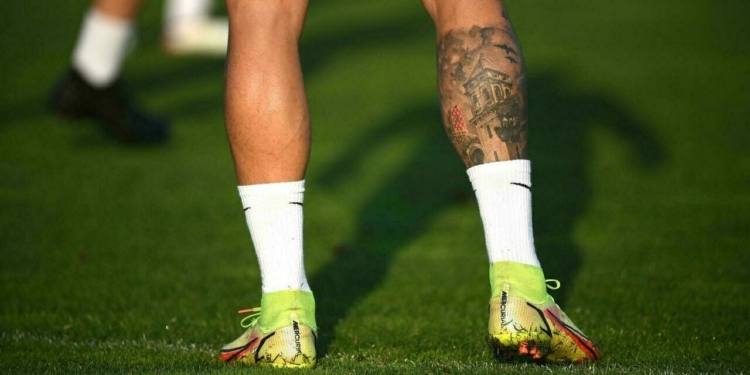Footballers playing in China’s national team should remove any existing tattoos and are “strictly prohibited” from getting any new ones, the country’s sports administration body has said.
In recent years, the sport has become a target of the Communist Party’s purge, and players on the national football team often cover their arms with long sleeves or bandages to conceal their tattoos.
Players in the national team, meanwhile, are “strictly barred from obtaining fresh tattoos,” according to a statement issued by the China Sports Administration on Tuesday.
“Those who have tattoos are advised to have them removed,” the statement continued. “In special circumstances, the tattoos must be covered during training and competition, with the consent of the rest of the team.”
It went on to say that the under-20 national teams and those even younger were “strictly prohibited” from recruiting anyone with tattoos.
But not all fans appeared to be behind the new rules.
“Are we choosing a good football player or a saint?” asked one angry fan on the social media platform Weibo.
“Shall we just say outright that only the Party members could play football?” asked another.
Body ink is traditionally frowned upon in China but it is increasingly popular among young adults, even as authorities make plain their disdain for it.
The Chinese Football Association has ordered players in the national team to cover tattoos in recent years and packed young footballers off to military camps for drills and Marxist-style “thought education”.
That has prompted complaints from fans that it is thinking more about politics than sport.
Last year, a women’s university football match was eventually called off after players were told they were not allowed to have dyed hair.
President Xi Jinping wants China to host and even win the World Cup one day.
But they are fifth of six teams in their qualifying group for next year’s World Cup, with only the top two guaranteed to qualify.
This year, Beijing has also pushed through a series of restrictions on youth culture, including sweeping measures to ban “abnormal aesthetics” and crack down on the perceived excesses of modern entertainment.
It has made an example out of movie stars that allegedly stepped out of line, banned reality talent shows and ordered broadcasters to stop featuring “sissy” men and “vulgar influencers”.
As tensions have mounted with the West, China has also pushed a nationalist and militaristic narrative at home, including a vision of tough masculinity.










Discussion about this post